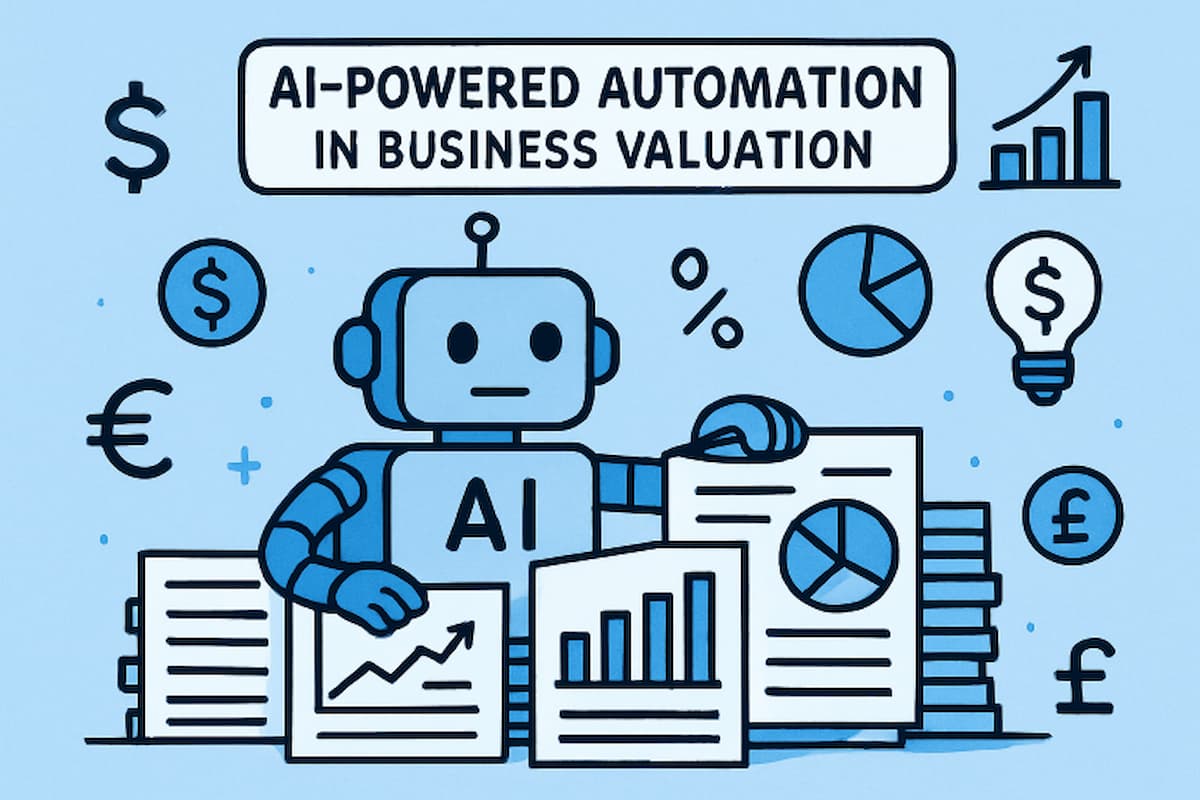Key Takeaways
- AI-powered automation boosts the accuracy, efficiency, and depth of business valuation.
- Automated systems are adept at identifying patterns, minimizing human bias, and uncovering intangible assets.
- Key challenges include ensuring data privacy, model transparency, and regulatory compliance.
- Ethically implemented AI tools pave the way for smarter, more strategic business decisions.
Introduction
Artificial Intelligence (AI) has become a driving force across multiple sectors, redefining traditional practices with cutting-edge solutions. In strategic business valuation, AI-powered automation is reshaping how organizations ascertain enterprise value by providing more precise, efficient, and data-driven results. As a result, firms can make sharper strategic decisions that have far-reaching impacts across the business landscape. For companies seeking enhanced clarity in business valuation, companies like Stratford Analytics offers expertise that bridges advanced automation technologies with robust industry insight.
AI brings a dynamic approach to valuation by integrating vast and varied data sources, unearthing new dimensions of company value, and enabling leaders to respond proactively to market shifts. The synergy between human expertise and technological innovation is setting a new standard for valuing everything from large corporations to early-stage startups.
Enhancing Accuracy with AI
Traditional valuation approaches, such as the discounted cash flow method or comparable company analysis, often rely on limited, often backward-looking data and require significant manual input. These methods can be slow and vulnerable to inaccuracies or overlooked details. AI transformation addresses these gaps. Machine learning algorithms are capable of analyzing billions of data points—financial statements, industry benchmarks, economic trends, and even unstructured data sources like news and social sentiment—rapidly and consistently. This breadth of analysis facilitates valuations that capture a more nuanced, holistic picture of business value.
Improving Efficiency in Valuation Processes
AI-driven automation dramatically increases operational efficiency in business valuation by reducing the time and resources required for data collection, cleansing, and analysis. Key tasks such as extracting financial metrics, standardizing reports, or flagging anomalies are managed by AI tools, freeing analysts to focus on higher-level interpretation and scenario modeling. This streamlined process not only speeds up valuation cycles but also enables organizations to scale their valuation activities across portfolios with far fewer bottlenecks. As reported by McKinsey & Company, workflows that once took weeks can now occur in a matter of days.

Identifying Intangible Assets
Intangible assets—such as intellectual property, proprietary technology, brand equity, and customer loyalty—represent a growing share of company value, particularly for knowledge-based and technology-driven businesses. AI is uniquely equipped to evaluate these assets through advanced data mining techniques. By analyzing patent citations, trademarks, online sentiment, or customer churn data, AI tools quantify these less tangible elements and map their impact on a company’s valuation. The ability to factor in non-financial metrics provides investors and decision-makers with a more comprehensive understanding of corporate value that extends beyond traditional hard assets.
Mitigating Bias and Subjectivity
Biases and subjectivity are difficult to avoid in manual business valuation. Experienced analysts are susceptible to over-optimism, recency bias, or anchoring on certain data points. AI platforms, when developed and trained responsibly, are engineered to deliver objective, data-driven outputs. These automated platforms ensure consistency by adhering to a standardized methodological framework, which is key for transparency and repeatability. Nevertheless, organizations must be vigilant—to secure fair results, the data used for training AI systems must itself be unbiased and representative of all relevant market conditions, as outlined by McKinsey & Company.
Challenges and Considerations
While automation opens up new possibilities, it is accompanied by real-world challenges that organizations must address. Chief among these are data privacy and security. Valuation processes often require access to sensitive, proprietary data, demanding robust safeguards and compliance with data protection laws, such as the GDPR. Another issue lies in model explainability—many AI algorithms operate as “black boxes,” producing results without clear visibility into how specific conclusions are drawn. This lack of transparency can erode trust among stakeholders, particularly in situations involving high-stakes decisions. Firms investing in AI-powered business valuation must prioritize transparent, explainable AI to foster accountability and maintain regulatory compliance.
Regulatory Compliance and Ethical Standards
The integration of AI into business valuation must keep pace with evolving regulatory landscapes and ethical guidelines. Global regulators are establishing new standards for AI usage, particularly in finance and analytics, focusing on accountability, data integrity, and consumer protection. Organizations must remain vigilant, updating their governance frameworks to address both legal mandates and industry best practices. Maintaining clear audit trails, documenting AI methodologies, and regularly reviewing automated processes are crucial steps in upholding ethical standards in valuation.
Final Thoughts
AI-powered automation represents a paradigm shift in strategic business valuation, dramatically improving accuracy, efficiency, and recognition of intangible assets. By overcoming human biases and harnessing a broader array of data, automated systems provide richer and more reliable valuations, enabling smarter and more strategic decision-making. However, success depends on a thoughtful approach: organizations must actively manage challenges related to privacy, model transparency, and regulatory compliance. With careful adoption, AI augments valuation processes, positioning businesses for sustained innovation and growth.



